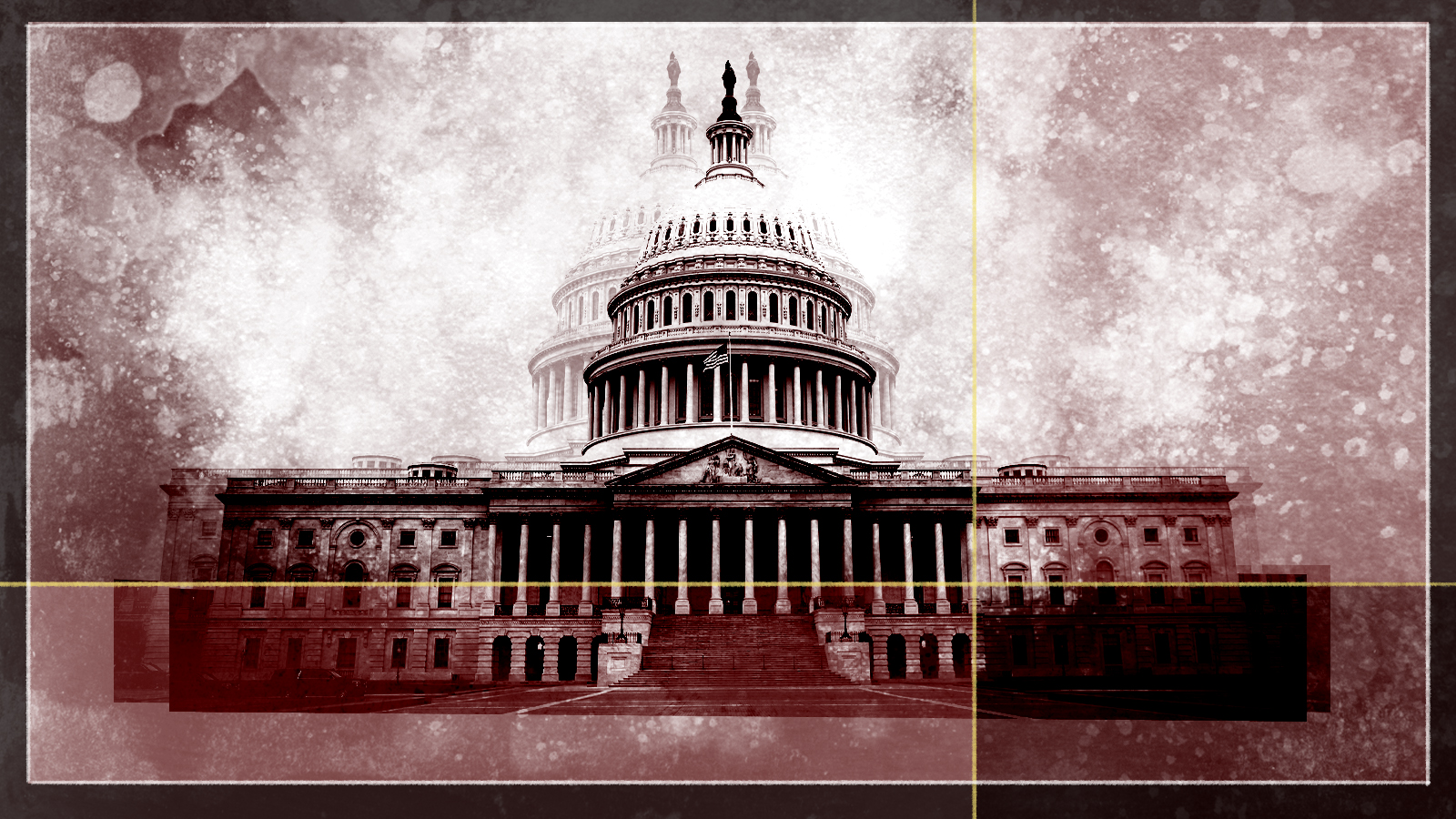What the 'new right' would do with power


A free daily email with the biggest news stories of the day – and the best features from TheWeek.com
You are now subscribed
Your newsletter sign-up was successful
With Democrats in Congress facing strong headwinds in November's midterm elections and President Biden's approval ratings languishing in the low 40s, journalists have begun to ask what Republicans might try to accomplish if they regain full power in Washington in 2024.
In a recent column for The Washington Post, Greg Sargent posed the question in a provocative way, identifying three intellectual camps seeking to develop a policy agenda for candidates temperamentally aligned with Fox News host Tucker Carlson and GOP Senate candidates J.D. Vance (Ohio) and Blake Masters (Ariz.). Together these figures amount to a "new right," Sargent says, and its varying preoccupations are likely to shape the Republican Party over the years to come.
The national conservatives: The first camp, which includes author Yoram Hazony and National Review's Nate Hochman, combines hostility to immigration with support for an industrial policy to keep American companies from moving abroad and penalize those that do business with China. The natcons also hope to use state power to combat the teaching of critical race theory and support traditional families.
The Week
Escape your echo chamber. Get the facts behind the news, plus analysis from multiple perspectives.

Sign up for The Week's Free Newsletters
From our morning news briefing to a weekly Good News Newsletter, get the best of The Week delivered directly to your inbox.
From our morning news briefing to a weekly Good News Newsletter, get the best of The Week delivered directly to your inbox.
The post-liberals: Members of the second group agree with much of what the natcons stand for. But post-liberals like Gladden Pappin of the journal American Affairs go further to advocate for policies like a "nationally instituted family wage." Pappin would devote as much as 5 percent of GDP toward this sort of promotion of traditional families. Other post-liberals favor aggressive moves to bring home globalized supply chains and hope to launch pro-natalist policies modeled on those pioneered by Hungary's Viktor Orban, a hero to many on the new right.
The integralists: At the furthest extreme are those, like Adrian Vermeule of Harvard Law School, who favor a unification (or integration) of church and state in which the government actively seeks to inculcate policies that advance "the common good" while legislating against "corrosive social practices" across a wide range of issues.
Sargent's taxonomy is useful for analytical purposes, but the distinctions don't really hold up under scrutiny. All the groups are hostile to immigration. All support industrial and pro-family policies. And all break from longstanding libertarian tendencies of American conservatism to favor the use of federal power in advancing the right side of the culture war. Their differences are of degree, not kind.
The real distinction is between these new right groups, on the one hand, and those who remain loyal to the old Reaganite dispensation, which is best understood as right-leaning liberalism, on the other. All three groups can be placed in a single category: right-wing antiliberals, many of whom are willing and even eager to make common cause with left-wing antiliberalism for the sake of winning political power.
A free daily email with the biggest news stories of the day – and the best features from TheWeek.com
That is what we need to prepare for when we ponder the possibility of a future Republican restoration.
Damon Linker is a senior correspondent at TheWeek.com. He is also a former contributing editor at The New Republic and the author of The Theocons and The Religious Test.
-
 Why is the Trump administration talking about ‘Western civilization’?
Why is the Trump administration talking about ‘Western civilization’?Talking Points Rubio says Europe, US bonded by religion and ancestry
-
 Quentin Deranque: a student’s death energizes the French far right
Quentin Deranque: a student’s death energizes the French far rightIN THE SPOTLIGHT Reactions to the violent killing of an ultraconservative activist offer a glimpse at the culture wars roiling France ahead of next year’s elections
-
 Secured vs. unsecured loans: how do they differ and which is better?
Secured vs. unsecured loans: how do they differ and which is better?the explainer They are distinguished by the level of risk and the inclusion of collateral
-
 Why is the Trump administration talking about ‘Western civilization’?
Why is the Trump administration talking about ‘Western civilization’?Talking Points Rubio says Europe, US bonded by religion and ancestry
-
 Why are election experts taking Trump’s midterm threats seriously?
Why are election experts taking Trump’s midterm threats seriously?IN THE SPOTLIGHT As the president muses about polling place deployments and a centralized electoral system aimed at one-party control, lawmakers are taking this administration at its word
-
 House votes to end Trump’s Canada tariffs
House votes to end Trump’s Canada tariffsSpeed Read Six Republicans joined with Democrats to repeal the president’s tariffs
-
 How are Democrats trying to reform ICE?
How are Democrats trying to reform ICE?Today’s Big Question Democratic leadership has put forth several demands for the agency
-
 Big-time money squabbles: the conflict over California’s proposed billionaire tax
Big-time money squabbles: the conflict over California’s proposed billionaire taxTalking Points Californians worth more than $1.1 billion would pay a one-time 5% tax
-
 Did Alex Pretti’s killing open a GOP rift on guns?
Did Alex Pretti’s killing open a GOP rift on guns?Talking Points Second Amendment groups push back on the White House narrative
-
 Is Alex Pretti shooting a turning point for Trump?
Is Alex Pretti shooting a turning point for Trump?Today’s Big Question Death of nurse at the hands of Ice officers could be ‘crucial’ moment for America
-
 Washington grapples with ICE’s growing footprint — and future
Washington grapples with ICE’s growing footprint — and futureTALKING POINTS The deadly provocations of federal officers in Minnesota have put ICE back in the national spotlight
